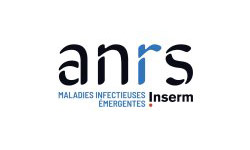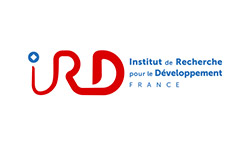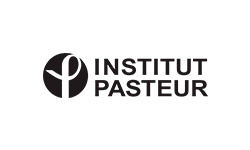The AFROSCREEN consortium
As part of the Covid-19 – Santé en Commun initiative, in 2020 the French Development Agency (AFD) funded three major projects to strengthen laboratory capacity in Africa for Covid-19 diagnosis:
With the emergence of the Alpha and Beta variants, these initiatives have been consolidated into a joint project: AFROSCREEN, coordinated by ANRS Emerging Infectious Diseases and implemented by a consortium including the Institut Pasteur, the IRD and a network of 25 partner laboratories in 13 sub-Saharan African countries.
In 2025, the project received additional funding from the Ministry for Europe and Foreign Affairs (MEAE) via the Fonds Équipe France (FEF). This new phase aims to guarantee the sustainability of sequencing platforms, strengthen local skills and extend surveillance to emerging and re-emerging viruses such as arboviruses and hemorrhagic fevers.
AFROSCREEN is supported by key African institutions, including the Institut Pasteur de Dakar (IPD) and the Centre de recherche et de formation en infectiologie de Guinée (CERFIG), which play a central role in the training and expansion of the network.
This project is aligned with the strategies of the Africa CDC and the WHO, contributing to the establishment of sustainable genomic surveillance networks on a continental scale.

ANRS | Maladies infectieuses émergentes is an autonomous agency of Inserm.
Its missions are to facilitate, evaluate, coordinate and fund research on HIV/AIDS, viral hepatitis, sexually transmitted infections, tuberculosis and emerging and re-emerging infectious diseases (particularly viral haemorrhagic fevers, arboviruses, and emerging respiratory diseases – including Covid-19). Its organisation places the emphasis on innovation and the strengthening of international partnerships. Taking a One Health approach that considers human and animal health and the human impact on the environment, the agency is preparing a response to the scientific challenges posed by emerging diseases and for its deployment in times of crisis. Through its coordination missions and its international expertise, the agency plans to lead and coordinate large-scale capacity-building projects.
The Infectious Diseases in Low Income Countries (IDLIC) team from the Inserm – University of Bordeaux Research Centre (U1219 Bordeaux Population Health) as reference for epidemiological research in Africa is actively participating in the second component of the project.

The National Research Institute for Sustainable Development (IRD) is a French multidisciplinary research establishment operating under the joint authority of the Ministry for Higher Education, Research and Innovation and the Ministry for Europe and Foreign Affairs. It takes an original approach to research, expertise, training and knowledge-sharing for the benefit of countries and regions, making science and innovation key drivers in their development.
IRD is a key French player on the international development agenda. Its work is founded on an original model: equitable scientific partnership with developing countries, primarily those in the intertropical regions and the Mediterranean area.
IRD sets its priorities in line with the Sustainable Development Goals (SDGs), to steer development policies and tackle the major challenges related to the global, environmental, economic, social and cultural changes that affect the whole planet.
Two IRD units are involved in AFROSCREEN:
- The TransRANSHIV-MI international joint research unit (IRD, Inserm, University of Montpellier), which is studying the emergence and management of infectious diseases in countries of the Global South, particularly in West and Central Africa.
- The MERIT ‘Mother and child in a tropical environment’ multidisciplinary joint research unit (IRD, University of Paris), whose work centres around three areas: host-pathogen interactions; medicines – from molecule to market; and the genetic adaptation of the host.

A foundation recognised as being of public benefit, established by decree in 1887 by Louis Pasteur, Institut Pasteur is today an internationally renowned centre for biomedical research with a network of 33 institutes present on five continents.
In the pursuit of its mission to prevent and control diseases in France and throughout the world, Institut Pasteur operates in four main areas: research, public health, education and training, and development of research applications. A globally recognised leader in infectious diseases, microbiology, and immunology, Institut Pasteur is dedicated to the study of the biology of the living world. Its work is therefore focused on emerging infectious diseases, antimicrobial resistance, certain cancers, brain connectivity diseases and neurodegenerative diseases.
To reinforce the excellence of its research, Institut Pasteur has and is developing a very high-level technological environment, such as in nanoimaging or computational biology and artificial intelligence. Since its inception, 10 Institut Pasteur scientists have been awarded the Nobel Prize for Medicine, the latest in 2008 in recognition of their discovery in 1983 of the human immunodeficiency virus (HIV) responsible for AIDS.